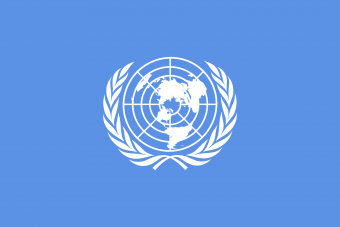NEW YORK, (Office of Information and Communications Technology) — The United Nations announced recently that Jonas Hörsch, a doctoral student in physics at the Frankfurt Institute for Advanced Studies, is the winner of the Unite Ideas #SE4All MathProg challenge. Mr. Hörsch’s solution significantly improved an existing open-source energy modelling tool, the Open Source Energy Modelling System, making it more accessible and useful for energy planners around the world who are working to achieve the goal of universal access to electricity.
The project was the second collaboration among Sweden’s KTH Royal Institute of Technology, the United Nations Department of Economic and Social Affairs and the United Nations Office of Information and Communications Technology, as part of an initiative to develop open source technologies to support sustainable development policies. The previous challenge — the #Electricity4All Python programming challenge — engaged the public in refining another computer model, the Open Source Spatial Electrification Toolkit into Python, an open-source programming language, allowing the tool to reach a larger community of researchers, organizations and Governments involved in energy planning.
The two Unite Ideas challenges “marked a breakthrough in our research activity and in its contribution to sustainable development policies,” said Francisco Gardumi of KTH, one of the co-sponsors of the challenge.
Electricity is essential to poverty alleviation and sustainable development, making it a central priority for the United Nations’ 2030 Agenda for Sustainable Development. However, the goal of providing universal access to electricity carries significant challenges. KTH, the Department of Economic and Social Affairs and other partners developed the Open Source Energy Modelling System and the Open Source Spatial Electrification Toolkit to identify the lowest cost options available to achieve universal electrification by incorporating relevant local factors, including geography, distance to the grid and the availability of fuel sources.
The winning #SE4All solution reduced the time required to run the Open Source Energy Modelling System model by “orders of magnitude” — from around 15 hours to 9 minutes. Because it involved limited modification of the existing source code, “the improved model can be shared immediately with the global open-source community, creating huge potential for it to lead to new applications previously prevented by the high computational effort required,” said Mr. Gardumi.
#SE4All is the sixth challenge issued by Unite Ideas, a big data crowdsourcing platform developed by the Office of Information and Communications Technology to facilitate collaboration among academia, civil society and United Nations offices, and to mobilize data scientists and software developers worldwide to help tackle the complex issues faced by the Organization and its Member States though the creation of open-source technology solutions. To date, academia, the general public and private companies have responded to the Unite Ideas challenges with more than 50 open-source solutions, many of which will be used by the United Nations or shared with Member States.
Source: un.org




